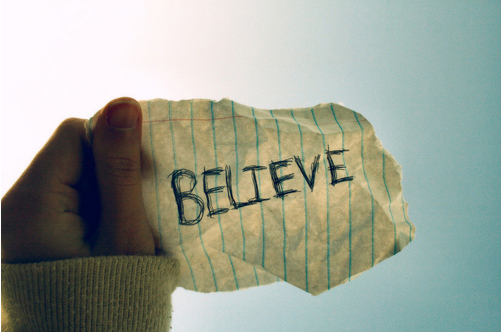The Secret to Building Your Coping Fitness

Whenever any one of us get sick, we rely on our body’s immune system to combat whatever virus or bacteria we have contracted.
Sometimes we need an extra boost, like an antibiotic, an anti-viral, or a flu shot, to complement our immune system so we can get better more easily.
A person’s physical fitness level also plays a big role in how well he/she can fight off the infection. But I’m sure you already know that.
When we are faced with adversity, such as the sudden loss of our job or learning that our child has a disability or health issues, our immune system really can’t help us much.
Our physical fitness level can keep us moving but it is our emotional strength and coping mechanisms that allow us to combat this adversity and “get better”.
Your Coping Fitness
Put another way, our “coping fitness” determines how much stress, anxiety, and emotional trauma we can handle and how well we will recover.
If it’s in good shape, we can deal with a lot.
The level of our coping fitness will determine how well we get through it.
Of course, none of us can become physically fit without working at it every day, though some have to work harder than others.
Eating the right foods, getting at least 7 hours of sleep each night (I’m not sure I’ll ever get there), and exercising several times per week are all ways to get there.
Again, I’m sure you already know this.
In a similar way, we shouldn’t expect our coping fitness to somehow magically develop or improve on its own.
We have to work at strengthening it every day and there are a number of ways to do this.
But regardless of the techniques or strategies we apply or the habits we develop, they won’t be effective unless we start from a strong foundation.
And that foundation is this: the belief that we are all worthy of something better – something more than what life is throwing at us right now – and, indeed, that that something better is worthy of us!
The Secret
Now, that may sound over-the-top but, in reality, this IS the secret to building our coping fitness.
The belief and the confidence that we are called to live freely, fully, and energized even though our current situation may be none of that, even completely overwhelming.
Look at it this way.
Most people’s natural response to any confrontation or crisis situation is (usually) to fight back, or become defensive, even angry. Often, this can progress into feelings of “why me?”
And we may start to lose confidence in ourselves and wonder if we have any control over where our life is going.
But none of those responses have to take place if we chose not to.
Just like we have control over making decisions to get physically healthy (e.g. go to that exercise class, shun that bag of chips), we also have control over making decisions to achieve something better.
By recognizing that we are responsible for our own choices, that someone else isn’t forcing us to make this choice or that choice, and that we have the freedom of those choices, we begin to see that we are not dependent on other people.
We begin to see that we are not victimized by other people or by circumstance. We get out of blaming others for our situation.
By the way, this is the essence of Stephen Covey’s “Habit 1 – Be Proactive", so trust that it works.
Of course, just because we chose or believe in “something better” doesn’t mean it will instantly happen or it will be easy.
Change is hard but it is always possible. And we can be in control of that choice.
If we don’t believe we can choose our response, then our situation becomes a self-fulfilling prophecy.
People who believe that they are pre-determined will produce the evidence to support that belief, and increasingly feel victimized and out of control.
Ok, so nothing is going to happen overnight. Remember, there is nothing instant about building your coping fitness.
But you have to start somewhere. Learn this secret, and you will be well on your way to becoming “coping fit”!
Take care. Be well!
-- Mike --


